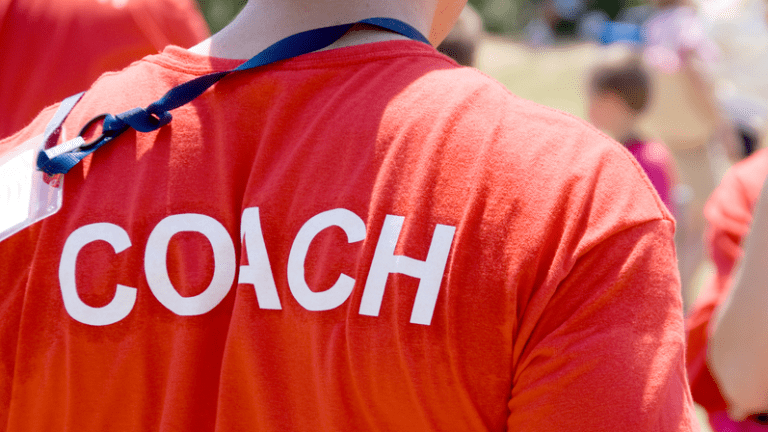Practice time, if you are on a school or club team, is precious. It is time for the coaching staff to get the team aligned to their philosophy and to train and evaluate the athletic talent available, and for the athletes to bond with one another.
Though the practice time is precious, it is sometimes not enough time for athletes to accomplish all of their personal goals. Additionally, it may not be enough time for the coaching staff to dedicate on specific drills or strategy to benefit each athlete individually.
For example, the last high school team I coached practiced 90 minutes each day, typically five days a week. So that’s 450 minutes (7.5 hours) a week. But, not all of that was actual practice.
Let’s break it down:
Warm-up: 20 minutes
Announcements & goals: 5 minutes
Split-up for practice: 5 minutes
Practice: 45 minutes
Cool Down: 10 minutes
Stretch: 5 minutes
Total: 90 minutes
In reality then, my athletes were only getting 225 minutes (3.75 hours) a week worth of actual practice – working specifically on running, jumping, etc. That is considerably less time.
The Dilemma
As a coach, it is incredibly difficult to balance practices (especially in high school) for elite athletes and newcomers. When designing the practice, you have to create different workouts and goals within the practice so all athletes can improve, be challenged and be happy.
As an athlete, it can be incredibly frustrating to try and get the attention of the coach when staffing resources are stretched thin.
In that case, the athlete may decide to reach outside the school or club team and seek private coaching to bolster their training.
How To Do It
I worked with several coaches who would get furious if one of their athletes decided to work with a private coach while also training with them. I can understand why – it can send a lack of confidence message to the coach and the team, and it may cause a rift between the athlete and the team. But, I think there are certain reasons why athletes should try it. I also believe there is a right way to go about doing it.
Reasons to Work with a Private Coach
1) Expertise
Some track & field activities require specific knowledge. For example, I know sprinting mechanics and running economy very well, but I would not be comfortable trying to coach a new athlete on the javelin. Javelin coaching takes an expertise that I cannot provide. Therefore, if I had an athlete who wanted to learn javelin and they found a coach for it, I would readily allow them to work with that private coach.
2) Additional Time
When you look at the practice breakdown previously stated in this article, my athletes were only getting 3.75 hours a week actually training. And in some cases, it wasn’t running: weight-room, stretching, strategy or body-weight exercises were also a mainstay in my program. Some athletes can flourish with that small bit of time. Others take the initiative and workout or run on their own. The athletes who are new or are struggling with certain aspects can get lost in the shuffle. As we all know, the season moves very fast, and some athletes do not develop as fast as they may like. For example, if a sprinter decided that they wanted to change the way they sat in a starting block, they might not have the time to have a coach wait on them, provide feedback and test.
In this case, if the sprinter found a coach in order to get in more reps for improving their start because I didn’t have the time to assist, I would be for it.
3) Correcting Problem Areas
This is the biggest reason why I would encourage an athlete to get outside assistance. As a high school coaching staff, it is hard to dedicate time to correct bad form, jumping mechanics and the like. Believe me, we definitely would, but the demands of the team usually outweigh and outpace the demand of the athlete, which can be seen as unfair and frustrating. And when coaches try to do 1-on-1 coaching, then scholastic politics kick in; parents think coaches are picking favorites. Due to the environment we live in, it is simply best for school coaches to avoid the politics and keep pace with the season.
With all that being said, I would be fine with an athlete getting an outside coach if the goal was to focus on the problem areas that hinder them from having a productive practice.
The Right Way to Get a Private Coach
1) Ask the Team Coach
Please ask the coach first before working with a private coach. First and foremost, it is the most respectful thing to do. Second, the track & field coaching world is smaller than one would think – names and reputations get around, so your team coach might know them.
2) Align Workout Philosophy
After the athlete asks the coach, they can either setup a conversation for the two coaches to talk, or act as an intermediate. The athlete should ask the team coach what their philosophy is for that specific athlete (if the athlete doesn’t already know) so they can bring that information to the private coach in order to make sure the external training does not prevent the athlete from being useful in the program.
For example, in cross country or distance running there are two main schools of thought: low-mileage and high-mileage for training. Either works, but it depends on the system the coaching staff has set up. So if the team practice is based on low-mileage, speed-type workouts, and then the athlete practices high-mileage with their private coach, injury is highly probable. No one wins in that scenario. Remember, the goal is to have the private coach enhance your regular practice, not replace it.
3) Set Priority
This item takes a serious conversation, especially for an athlete who is brand new, or injured or some other special case. Sometimes the athlete may need to look beyond the current season and start preparing for the next one. If the athlete is brand new and wants to take additional time to get the basics down, that’s fine. But their season may end earlier because the latter part of the season is time for high-performance, not basics. So asking the athlete seriously if they want to contribute, or stay back to lay a foundation for something else is a talk worth having. Or, track & field might not be their main sport, and have an outside coach doing something else. Again, if their main sport is demanding more exertion that’s fine, but an honest conversation about their time being considered part of the team will need to be held.
4) Avoid Burnout
Rarely can an athlete reach top performance in track & field by “burning the candle on both ends.” Bad idea. Make sure hard practices do not conflict with each other. Ask coaches about the plan for the week, so everyone knows what’s going on. Remember, the private coach is to enhance the team practice, not vice versa. The team practice is where the athlete fights for a spot for the fast heats or the relay.
Conclusion
We know well enough that there is much more the athlete can do on their own to be successful – eating right, sleeping, maintaining a schedule, etc. – but practice time with a coach is very important and can reinforce those independent activities. Also doing this the right way can improve the relationship the athlete has with their team or club coach.
Keep these reasons in mind, follow the guide and have a great season!
How useful was this post?
Click on a star to rate it!
Average rating 5 / 5. Vote count: 1
No votes so far! Be the first to rate this post.



